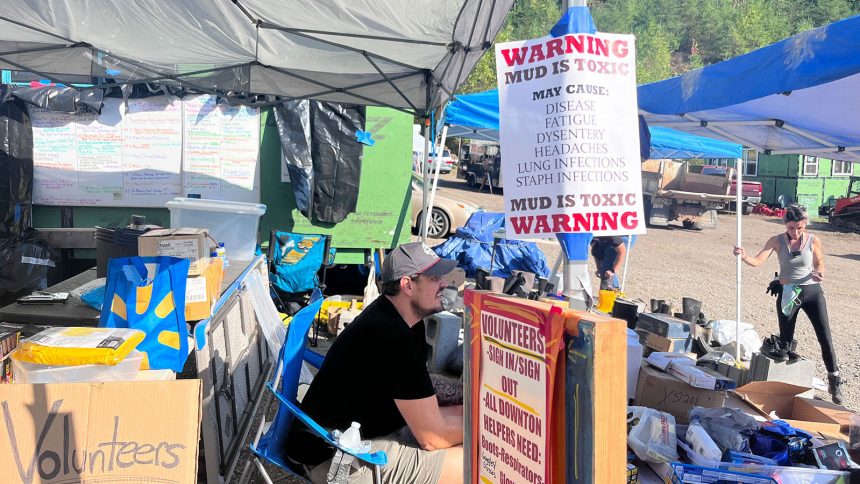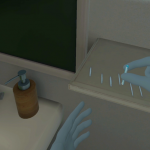Each day at 10 in the morning, a group of volunteers gather outside Gold’s Gym just south of downtown Asheville, North Carolina. They are organized into groups based on skills such as Spanish speakers and those with medical knowledge. Each person grabs a few five-gallon buckets and climbs into trucks to perform a crucial task: flushing toilets.
Twenty days after Hurricane Helene caused devastating floods in western North Carolina, over 100,000 people are still without clean water. The crisis extends beyond Asheville to neighboring mountain communities like Swannanoa and Black Mountain. While federal and state authorities have sent water supplies, they are limited. Residents are advised to boil any non-bottled water as they work to restore services.
The risk of disease remains high in the aftermath of a natural disaster like Helene. Residents in western North Carolina and eastern Tennessee are beginning to face secondary consequences due to the lack of clean water and the contamination left by the floodwaters.
The “Flush Brigade,” a group of volunteers in Asheville, is one of the many informal efforts helping to provide basic sanitation services. With the city’s water system damaged by the floods, residents are unable to shower or flush toilets. The volunteers, working out of a brew pub downtown, visit communities daily to ensure residents have access to clean toilets.
Despite the efforts of volunteers, the devastation is overwhelming. Many residents in towns along the French Broad River are dealing with contaminated soil and confusing public health information. The need for clean water and sanitation remains critical.
The aftermath of Hurricane Helene continues to pose health risks for residents in North Carolina. Contaminated water sources, polluted soil, and lack of sanitation facilities are ongoing challenges. The medical and public health communities are working to address these issues and provide assistance to those affected by the disaster.






